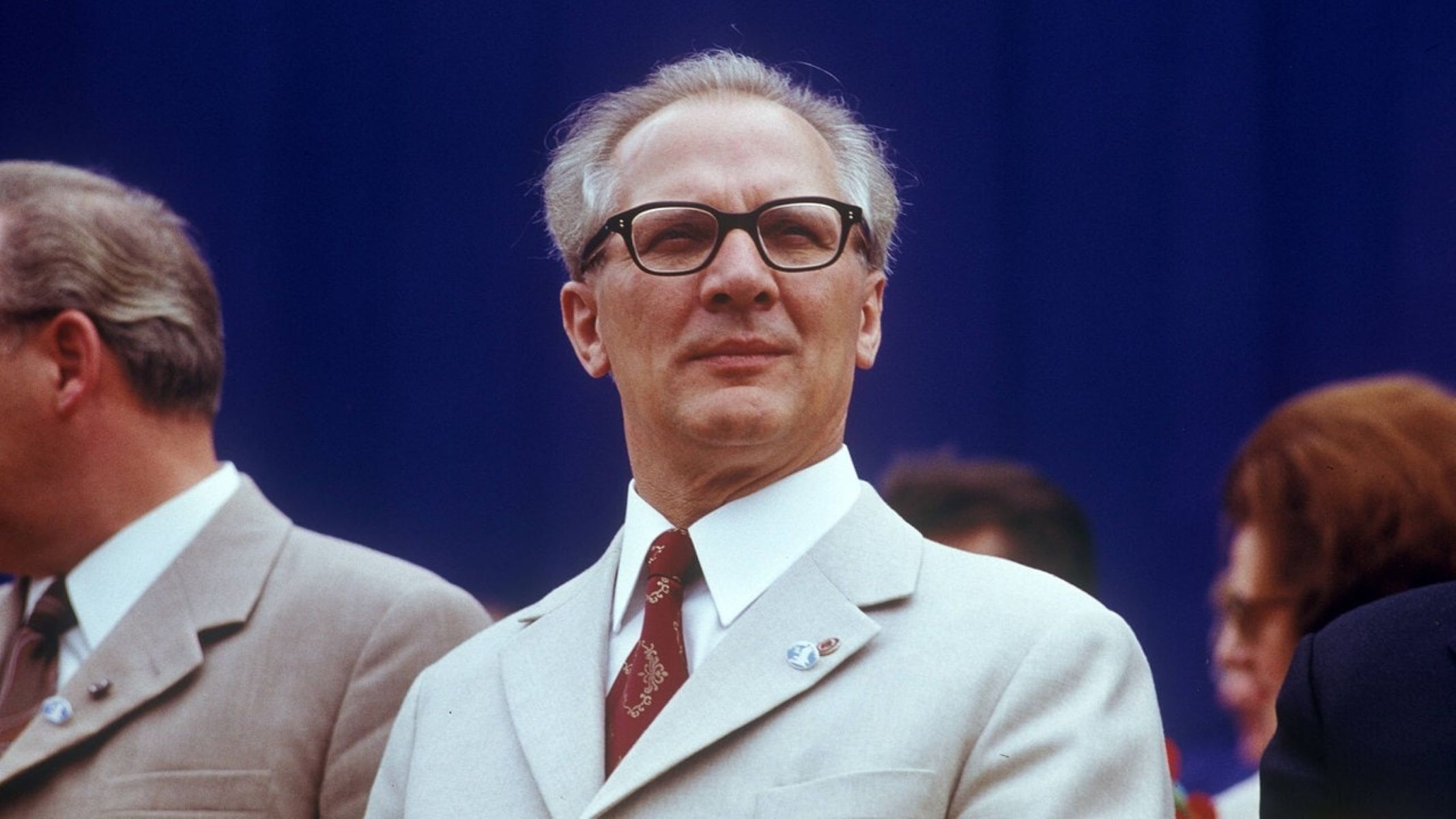
Erich Honecker, a prominent figure in German history, is known for his role as the General Secretary of the Socialist Unity Party of Germany (SED) and the leader of East Germany from 1971 to 1989. Throughout his career, Honecker left an indelible mark on German politics and the lives of its citizens. In this article, we will explore 10 astounding facts about Erich Honecker that shed light on his controversial leadership, his influence on the German Democratic Republic, and his eventual fall from power. From his role in the construction of the Berlin Wall to his policies on education and healthcare, Honecker’s legacy is both complex and fascinating. So, let’s delve into the life of Erich Honecker and unearth some captivating insights about this enigmatic figure in German history.
Key Takeaways:
- Erich Honecker led East Germany with a strong belief in socialism, tight media control, and controversial policies, sparking both support and opposition.
- Honecker’s legacy remains a topic of debate, representing both the successes and failures of the East German regime, leaving a lasting impact on history.
Erich Honecker was the General Secretary of the Communist Party in East Germany.
Erich Honecker held the powerful position of General Secretary of the Communist Party in East Germany for almost two decades. Under his leadership, East Germany experienced significant political and social changes.
Honecker’s leadership was marked by his staunch commitment to the socialist ideology.
Honecker was a staunch believer in socialist principles and was dedicated to implementing them in every aspect of East German society. He emphasized the importance of collective efforts, equality among citizens, and the eradication of class disparities.
Honecker was known for his tight control over the media and censorship policies.
During Honecker’s rule, media outlets in East Germany were tightly regulated, and the government strictly controlled the information that was disseminated to the public. Censorship policies were implemented to prevent any criticism of the government or the socialist system.
Honecker’s government implemented a program known as “Bauen und Wohnen” (Building and Living).
One of Honecker’s key programs was aimed at improving the housing conditions for East German citizens. The “Bauen und Wohnen” initiative focused on constructing new housing units and renovating existing ones, with the goal of providing every citizen with a comfortable and affordable living space.
Erich Honecker played a significant role in the construction of the Berlin Wall.
Honecker played an instrumental role in the decision to construct the Berlin Wall in The wall separated East and West Berlin, and its main purpose was to prevent mass migration from East to West Germany.
Honecker’s government implemented strict travel regulations for East German citizens.
Under Honecker’s rule, East German citizens faced tight restrictions on international travel. Permission to travel abroad was granted only under exceptional circumstances and required extensive bureaucratic processes.
Honecker’s regime faced widespread protests and opposition.
Despite his efforts to maintain control, Honecker’s regime faced significant dissent from the East German population. Protests against the government’s policies and demands for political reforms grew in intensity, eventually leading to the fall of the Berlin Wall in 1989.
Honecker was forced to resign in 1989 following the peaceful revolution in East Germany.
The peaceful revolution and the reunification of Germany marked the end of Honecker’s rule. As public discontent grew and demands for political change intensified, Honecker was forced to resign from his position as General Secretary of the Communist Party.
Honecker faced prosecution for his role in the deaths of citizens attempting to escape East Germany.
After the fall of the Berlin Wall, Honecker faced charges for his involvement in the deaths of individuals who attempted to escape East Germany. He was arrested and put on trial for human rights violations and was later granted asylum in the Soviet Union.
Honecker’s legacy remains a controversial topic in German history.
Erich Honecker’s role in East German history continues to be a subject of discussion and debate. While some view him as a symbol of oppressive rule and remember the human rights abuses under his regime, others argue that he made efforts to improve the living standards of East German citizens.
Conclusion
In conclusion, Erich Honecker was a fascinating figure in history. From his rise to power in East Germany to his controversial leadership and ultimate downfall, there are many astounding facts to learn about him. Whether it’s his role in the construction of the Berlin Wall, his determination to maintain a staunchly communist regime, or his eventual exile, Honecker’s life was filled with significant events that shaped not only East Germany but also the entire Cold War era. Despite his controversial legacy, there is no denying that Erich Honecker had a profound impact on the geopolitical landscape of his time.
FAQs
1. Who was Erich Honecker?
Erich Honecker was a prominent German politician who served as the General Secretary of the Socialist Unity Party and later as the head of state of East Germany from 1971 to 1989.
2. What was Honecker’s role in the construction of the Berlin Wall?
Honecker played a pivotal role in the construction of the Berlin Wall in 1961. He approved the decision to build the wall, which was aimed at preventing East Germans from fleeing to West Germany.
3. How long did Honecker remain in power?
Honecker remained in power for 18 years, from 1971 to 1989, making him one of the longest-serving communist leaders in Eastern Europe.
4. Why is Honecker considered a controversial figure?
Honecker is considered a controversial figure due to his authoritarian rule, human rights abuses, and the suppression of political dissent during his time in power.
5. What led to Honecker’s downfall?
Honecker’s downfall was a result of the mounting pressure for political reform, economic decline, and mass protests against his regime. This culminated in his removal from office in 1989.
6. Where did Honecker go after his ousting from power?
After his ousting from power, Honecker sought asylum in the Soviet Union and later in Chile, where he lived until his death in 1994.
Honecker's controversial legacy continues to shape discussions about East Germany's history. Delving deeper into Berlin's past, uncover fascinating facts about the Berlin Wall's construction and impact. For more insights into East Germany's political landscape, explore the intriguing life of Walter Ulbricht, another influential leader. Lastly, learn about the Nike Missile's role in the Cold War, a period marked by heightened tensions and military advancements.
Was this page helpful?
Our commitment to delivering trustworthy and engaging content is at the heart of what we do. Each fact on our site is contributed by real users like you, bringing a wealth of diverse insights and information. To ensure the highest standards of accuracy and reliability, our dedicated editors meticulously review each submission. This process guarantees that the facts we share are not only fascinating but also credible. Trust in our commitment to quality and authenticity as you explore and learn with us.


